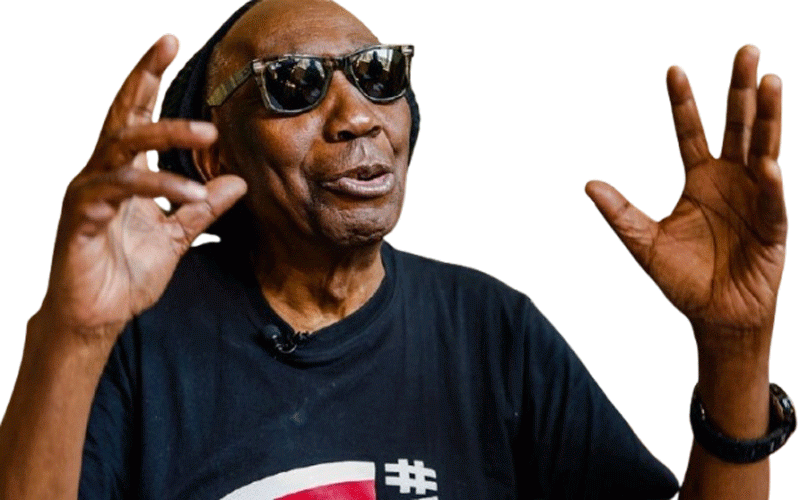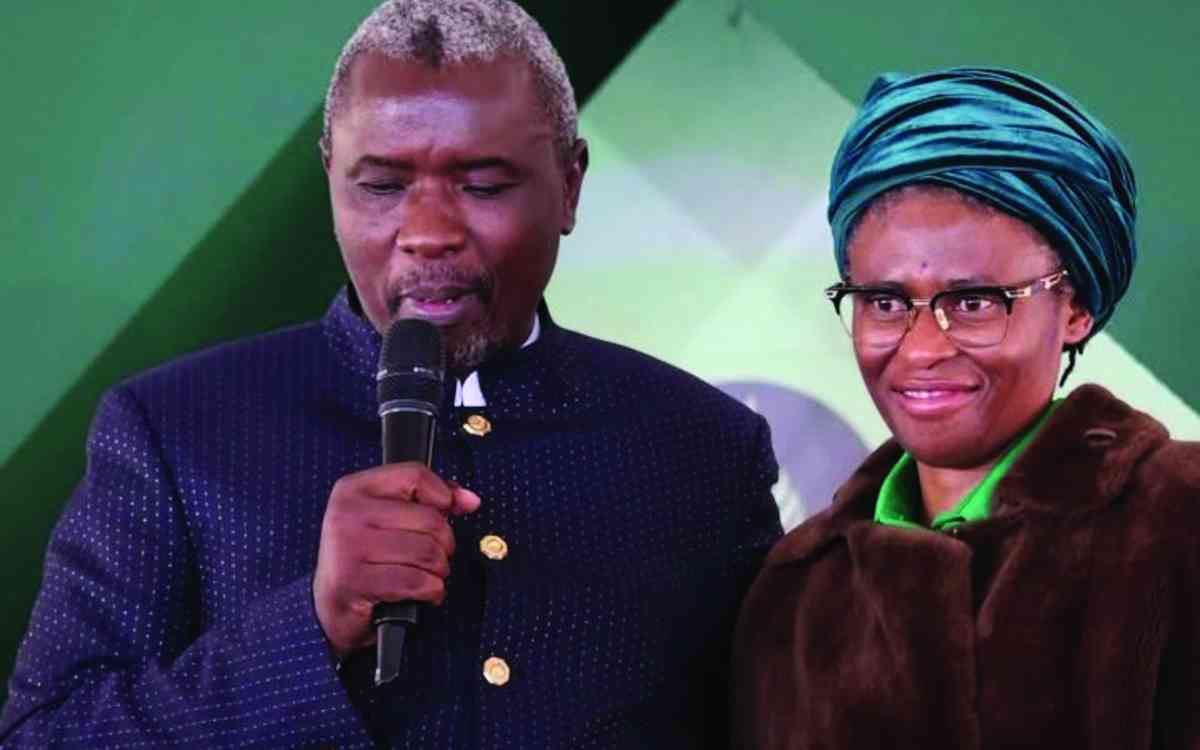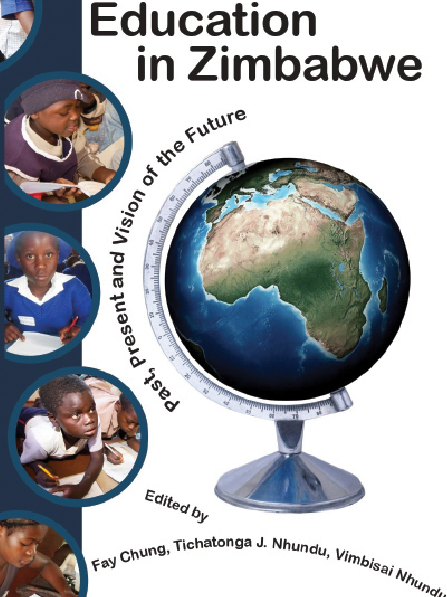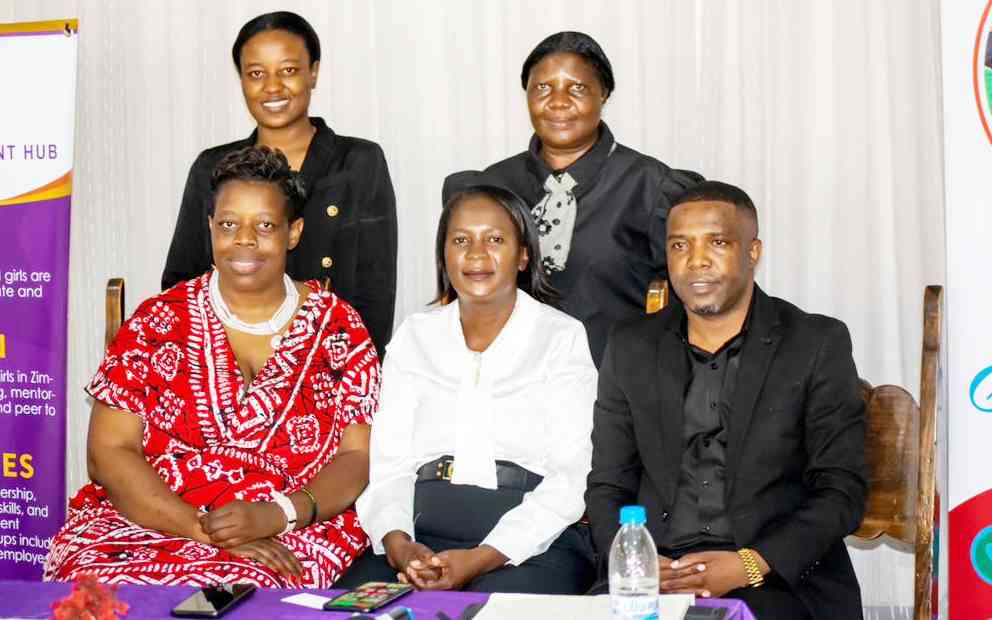
July 2 this year is Thomas “Hugo Hurricane” “Tafirenyika” “Mukanya” Mapfumo’s 80th birthday. I have been following Mukanya since 1980.
We all wish that he would come to Zimbabwe to celebrate his 80th birthday with us but this is a far cry from the idealistic thinking that we have compared to what Mukanya himself has. He could not even come to Zimbabwe to bury his brother, Lancelot when he died.
In Rhodesia, (now Zimbabwe), when people were under colonial stress as farm labourers, mine workers or industrial slaves, they had one artistic recourse. That was music. That was song. That was poetry — to express their joys, their sorrows, their anxieties, their fears and their hopes.
This is when Mapfumo’s words and lyrics came in and succored a people wracked by a century of invasion, theft, cultural sabotage, brutality and despotism during the bloody struggles for independence in the 1970s.
Mapfumo, (born on July 2, 1945) through his music, took Zimbabweans back to their cultural roots
His journey with his music which includes three months incarceration by the Smith regime and touching the raw nerve of successive regimes is the thread that binds him together with the struggles (chimurenga) of Zimbabwe.
There is no better way of understanding Zimbabwe than through an examination of the musical compositions that came from the life and work of Mapfumo.
He remains one of Zimbabwe’s most revered and successful artistes and arguably the most influential social commentator. During the last quarter of a century, he has written and recorded many songs that have resonated well with the whole world. To sample a few of his well-known hits, here is a little teaser:, Chimurenga Rebel, Zimbabwe, Mamvemve, Pidigori, Hanzvadzi, Vanhu Vatema, Vatete, Ngoma Yekwedu, Nyoka Musango, Corruption and Chimurenga For Justice. These are some of the songs that have made Mapfumo the great man that he is today
- Mukanya to headline tribute concert in SA
- Out & about: S1mba’s music newsier than expected
- Mukanya in flight dilemma
- Mukanya to headline tribute concert in SA
Keep Reading
He is still going strong. He is a true legend.
I had a four-hour interview with Mapfumo during his first European tour in 1984 when I was a student at the University of London. This interview resulted in my first book on music titled Roots Rocking in Zimbabwe.
I had gone to the Zimbabwe Embassy at the Strand in London when I got the information that Mapfumo with his band, The Blacks Unlimited, were in town.
The Blacks Unlimited were recording the album Chimurenga For Justice, which included the monster hit Mugara Ndega at Addis Ababa Recording Studios situated in Harrow Road, London, under the guidance of People Unite Productions. This arrangement was made by a guy called Van Renen.
Chris Bolton, Poko and Duxie of Misty-In-Roots Band were at the mixing desk monitoring the production.
The next day after my visit to the Zimbabwe Embassy, I boarded the Number 21 bus from King’s Cross Station near where I lived to Harrow Road.
I had been to Addis Ababa Studios before to witness my friends, Aswad and later King Sounds recording there.
As I walked into the recording studio, I was confronted by billows of smoke before I saw anyone. There was a large crowd of musicians sounding happy together in that room. The group consisted of Everson Chibamu on trumpet, Charles Makokoba on bass, Sebastian Mbata on drums, Jonah Sithole on lead guitar, backing vocalist, Tobias Areketa, Leonard “Picket” Chiyangwa on rhythm guitar and Chartwell Dutiro on mbira. There was also Lancelot Mapfumo and William Mapfumo (Thomas’ half-brother) Priscilla Masarira and Terry Mhuriro, who supplied the backing vocals on this European tour.
When Mapfumo eventually saw me, he was excited and he greeted me warmly. “I hope you have come to help us. We are trying to record an album which we will call Chimurenga For Justice,’’ he said.
I then sat down to watch the Blacks Unlimited recording. The band was not used to multi-track recording. They preferred to record all instruments live at once. This is the stage where my help came in. Together with the Misty-In-Roots guys we advised Mapfumo to lay down the tracks one by one starting with the drums and bass until all instruments were recorded. This would bring perfection to the sound as it is easily monitored track by track. Then the vocals would come last. Tobias, who was waiting to sing his part on the Mugara Ndega song was in disagreement. “Does that mean I have to wait until tomorrow to do my vocals? In Zimbabwe we all record together at once!” he remarked.
I explained to him that Gramma Records do it that way because they want to record as many bands as possible in the shortest time in order to save money, but here you have the luxury of working without time pressure in a modern studio.
He seemed nervous about that but I managed to convince him that this was the proper way of doing things if studio quality was to be achieved. He was poised to chant the lyrics to Mugara Ndega in Jamaican Patois in front of people who knew the language better than him, but he did it. After Thomas sang a few lines on the song, Tobias came in with the Patois
lines, chanting or toasting just like the Jamaican musicians did. He had not even written the words down. Everything came straight from his head as he chanted along. Tobias sang his part which went something like this:
This song is dedicated to Thomas Mapfumo;
The only man who sang freedom songs during the struggle for Zimbabwe
Our motherland you know;
So me say, He is a true man African
I say the man is a Thomas
Dem a put him in Jail
Because He was singing culture
Culture for the motherland
One day the police came during the Smith regime. Dem a took Thomas and put him away
Just because him a singing culture
Let’s love one another.
I congratulated Tobias on his effort and we became good friends thereafter.
The song became massive and back home in Zimbabwe, it also became Mapfumos biggest maxi-single hit as it sold hundreds of thousands of copies.
The Blacks Unlimited played their first London gig at the 100 Club, so called because it is situated at Number 100 Oxford Street. It was a small venue which could only accommodate around 500 people. On that Friday night, the venue had close to 1 000 people. It was so crowded that it was difficult for people to move about. Mapfumo opened the show with Gwindingwi Rine Shumba, then Pidigori before going into three other tunes after which he sang the crowd’s favourite, Ndanzwa Ngoma Kurira.
The following week, the band played at a larger venue, the Forum Ballroom in
London’s Kentish Town, over 2 000 people attended this concert. The audience’s reaction to Mugara Ndega was even more ecstatic as the crowd got used to this new offering especially the part where Tobias Areketa did the toasting/chanting.
Areketa passed on at the tender age of 30 in September, 1990, but his contribution to Mukanya’s music will live forever.
As we celebrate Mukanya’s 80th birthday and his contribution to Zimbabwe’s music industry, we also remember Tobias Areketa for his short- lived life and all the good things he did in the development of the Zimbabwean culture.
- Feedback: [email protected]











